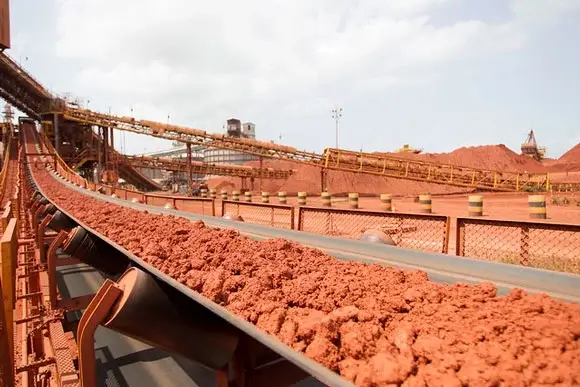The global alumina market shrank to $69.3 billion in 2021, down 8.5% from the previous year. This is stated in the report "The World - Alumina - Market Analysis, Forecast, Size, Trends and Conclusions" published on Wednesday. This indicator reflects the total revenue of manufacturers and importers (excluding logistics costs, intermediary margins, which will be included in the final consumer price).
Over the period under review, total consumption showed moderate growth from 2007 to 2021: its value increased by an average of +2.8% per year over the last fourteen years.
Alumina consumption by countries
China has become the country with the largest consumption of alumina (77 million tons), accounting for 58% of the total volume. Moreover, China's alumina consumption was ten times higher than that recorded by the second largest consumer, Russia (7.8 million tons). India (7.8 million tons) ranked third in terms of total consumption with a share of 5.9%. From 2007 to 2021, the average annual growth rate in volume terms in China was +8.5%.
In other countries, the average annual rates were as follows: Russia (-0.1% per year) and India (+8.2% per year). In value terms, China ($50 billion) led the market alone. The second position in the ranking was taken by Russia ($2.9 billion).
Alumina production
For the twelfth year in a row, the world market recorded an increase in alumina production, which increased by 1.7% to 138 million tons in 2021. +4.1% rate for the last fourteen years. In value terms, alumina production declined slightly to $69.1 billion in 2021 at export prices. During the period under review, production showed steady growth.
Production by country
China (74 million tons) remains the largest alumina producing country in the world, accounting for about 53% of the total. In addition, China's alumina production was four times that of the second largest producer, Australia (21 million tons). Brazil (11 million tons) ranked third in terms of total production with a share of 7.9%. In China, alumina production increased by an average of +10.0% per year from 2007 to 2021.
In the rest of the countries, the annual averages were as follows: Australia (+0.8% per year) and Brazil (+3.2% per year).
Export of alumina
In 2021, global alumina exports rose to 40 million tons, an increase of 86% compared to the previous year.
Overall, total exports showed moderate growth from 2007 to 2021, growing at an average of +4.5% per annum over the last fourteen years.
In value terms, alumina exports rose to $14.1 billion in 2021. Overall, total exports showed a marked increase from 2007 to 2021, with their value increasing at an average of +4.5% per annum over the last fourteen years.
Export by country
In 2021, Australia (18 million tons) was the main exporter of alumina, reaching 44% of the total supply. Brazil (9Mt) ranked second in the rankings, followed closely behind by Ireland (2.2Mt). All these countries together accounted for about 28% of all exports. It was followed by Jamaica (1.7 Mt), Ukraine (1.5 Mt), India (1.4 Mt), Indonesia (1 Mt), Spain (0.8 Mt), Kazakhstan ( 0.8 million tons) and the Netherlands (0.8 million tons) are far behind the leaders.
In value terms, Australia ($5.7 billion) has become the world's largest supplier of alumina, accounting for 41% of global exports. The second position in the ranking was occupied by Brazil ($2.4 billion) with a share of 17% of the total supply. It is followed by Ireland with a share of 5.1%. In Australia, alumina exports increased by an average of +69.2% per year between 2007 and 2021.
In the rest of the countries, the annual averages were as follows: Brazil (+4.7% per year) and Ireland (+2.3% per year).
Export prices by country
In 2021, the average export price of alumina was $350 per tonne, an increase of 1.8% compared to the previous year.
There were significant differences in average prices between the main exporting countries. In 2021, the country with the highest price was the Netherlands ($417 per ton), while Brazil ($270 per ton) was one of the lowest. From 2007 to 2021, the most notable price growth rates were achieved in the Netherlands, while other world leaders showed more modest growth rates.
Import of alumina
In 2021, about 32 million tons of alumina were imported worldwide; a fall of -5.2% compared to the previous year. Overall, however, imports continue to show a relatively flat trend.
In value terms, alumina imports increased markedly to 12.7 billion




